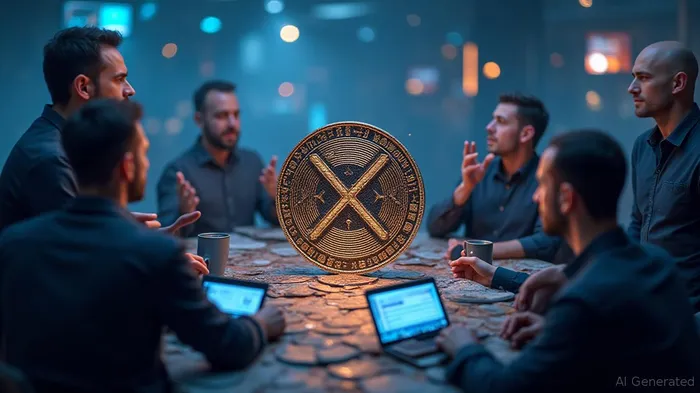XRP News Today: XRP's Speed and Efficiency Spark Debate Among Crypto Enthusiasts
Blockchain advocate John Squire recently sparked a debate in the cryptocurrency community by comparing XRP to Bitcoin and Ethereum, highlighting XRP's advantages in speed and efficiency. Squire likened Bitcoin to a landline, Ethereum to a cell phone, and XRP to Starlink, a satellite internet service known for its low latency and high-speed connectivity. This comparison quickly gained traction on social media, with many users agreeing that XRP offers more practical value in scenarios requiring fast and reliable transaction processing.
Bitcoin, the first and most well-known cryptocurrency, is constrained by slow block times and an energy-intensive proof-of-work system. This often results in delays and inefficiencies, as highlighted by a popular crypto YouTuber who recently showed a five-hour BTC transaction. Ethereum, while offering smart contract functionality, struggles with high network fees and variable performance under heavy use. In contrast, XRP is designed to support fast and inexpensive transfers, with an average settlement time of just a few seconds and transaction costs typically less than a cent. These attributes make XRP an attractive option for institutions that prioritize transaction speed and operational costs, such as banks and payment service providers.
Many experts believe that Bitcoin and Ethereum cannot compete with XRP in the global payment space due to these inherent advantages. The debate around XRP's superiority has been further fueled by comments from prominent figures in the crypto community. Panos Mekras, for example, questioned the rationale behind holding Bitcoin or Ethereum when XRP is fundamentally better. He described XRP as more sustainable and secure, and the "OG DeFi chain with everything built-in and no smart contract risks." Other commenters noted that Squire's comparison reflects the evolution of blockchain technology, with Bitcoin laying the foundation, Ethereum adding flexibility, and XRP representing the next generation with global reach and real-world utility.
While XRP has its skeptics, many supporters believe it is the best asset to lead the market. Although Bitcoin continues to be viewed by many as a long-term store of value, and Ethereum remains central to the development of decentralized applications (dApps), XRP is best suited for use cases that demand speed and scalability. The shift to the ISO 20022 standard, which is expected to enhance global payment systems, is also seen as a potential catalyst for XRP's growth. Some analysts predict that this transition could lead to a significant increase in XRP's adoption and value.
The comparison between XRP and Starlink is rooted in real-world network performance. XRP consistently ranks among the fastest and cheapest blockchain networks, making it a viable option for institutions and individuals seeking efficient and cost-effective transaction solutions. As the cryptocurrency market continues to evolve, XRP's unique advantages position it as a strong contender in the global payment landscape. The ongoing debate highlights the diverse use cases and strengths of different cryptocurrencies, with XRP emerging as a key player in the realm of fast and reliable transactions.

Quickly understand the history and background of various well-known coins
Latest Articles
Stay ahead of the market.
Get curated U.S. market news, insights and key dates delivered to your inbox.



Comments
No comments yet